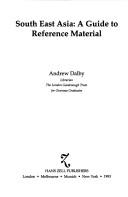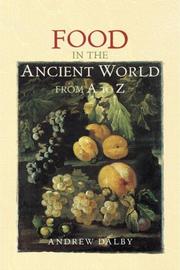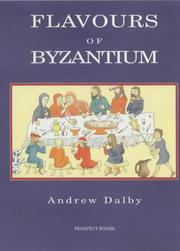| Listing 1 - 10 of 162 | << page >> |
Sort by
|

ISBN: 1856042510 Year: 1998 Publisher: London Library association
Abstract | Keywords | Export | Availability | Bookmark
 Loading...
Loading...Choose an application
- Reference Manager
- EndNote
- RefWorks (Direct export to RefWorks)
Lexicology. Semantics --- 801.3 <01> --- 030 <01> --- Language and languages --- -#KVHA:Bibliografieen; woordenboeken --- Languages, Modern --- -413.03 --- Ab1 --- Foreign languages --- Languages, Foreign --- Languages, Living --- Living languages --- Modern languages --- Languages --- Anthropology --- Communication --- Ethnology --- Information theory --- Meaning (Psychology) --- Philology --- Linguistics --- Lexicografie. Woordenboeken--Bibliografieën. Catalogi --- Encyclopedieën. Naslagwerken--(werken over)--Bibliografieën. Catalogi --- Dictionaries --- -Reference --- 030 <01> Encyclopedieën. Naslagwerken--(werken over)--Bibliografieën. Catalogi --- 801.3 <01> Lexicografie. Woordenboeken--Bibliografieën. Catalogi --- 413.03 --- #KVHA:Bibliografieen; woordenboeken --- Bibliography --- Encyclopedias and dictionaries

ISBN: 1873836007 Year: 1993 Volume: 2 Publisher: London Zell
Abstract | Keywords | Export | Availability | Bookmark
 Loading...
Loading...Choose an application
- Reference Manager
- EndNote
- RefWorks (Direct export to RefWorks)
Regional documentation --- Indochine --- Southeast Asia --- Asie du Sud-Est --- Bibliography --- Bibliographie

ISBN: 0415116201 9780415116206 0415156572 9780415156578 Year: 1997 Publisher: London Routledge
Abstract | Keywords | Export | Availability | Bookmark
 Loading...
Loading...Choose an application
- Reference Manager
- EndNote
- RefWorks (Direct export to RefWorks)
Cheese, wine, honey and olive oil--four of Greece's best known contributions to culinary culture- -were already well known four thousand years ago. Remains of honeycombs and of cheeses have been found under the volcanic ash of the Santorini eruption of 1627 BC. Over the millennia, Greek food diversified and absorbed neighboring traditions, yet retained its own distinctive character. In Siren Feasts, Andrew Dalby provides the first serious social history of Greek food. He begins with the tunny fishers of the neolithic age, and traces the story through the repertoire of classical Greece, the reputations of Lydia for luxury and of Sicily and South Italy for sybaritism, to the Imperial synthesis of varying traditions, with a look forward to the Byzantine cuisine and the development of the modern Greek menu. The apples of the Hesperides turn out to be lemons, and great favour attaches to Byzantine biscuits. Fully documented and comprehensively illustrated, scholarly yet immensely readable, Siren Feasts demonstrates the social construction placed upon different types of food at different periods (was fish a luxury item in classical Athens, though disdained by Homeric heroes?). It places diet in an economic and agricultural context; and it provides a history of mentalities in relation to a subject which no human being can ignore.
Cooking, Greek --- Food habits --- Gastronomy --- Cuisine grecque --- Habitudes alimentaires --- Gastronomie --- History --- Histoire --- Cooking [Greek ] --- Greece --- Cooking --- Feeding Behavior --- Diet Habits --- Eating Habits --- Dietary Habits --- Eating Behavior --- Feeding Patterns --- Feeding-Related Behavior --- Food Habits --- Behavior, Eating --- Behavior, Feeding --- Behavior, Feeding-Related --- Diet Habit --- Dietary Habit --- Eating Behaviors --- Eating Habit --- Feeding Behaviors --- Feeding Pattern --- Feeding Related Behavior --- Feeding-Related Behaviors --- Food Habit --- Habit, Diet --- Habit, Dietary --- Habit, Eating --- Habit, Food --- Habits, Diet --- Pattern, Feeding --- Nutrition Disorders --- Eating --- Food customs --- Foodways --- Human beings --- Habit --- Manners and customs --- Diet --- Nutrition --- Oral habits --- Cookery, Greek --- Greek cooking --- history --- History. --- Grèce ancienne --- Alimentation --- Antiquité --- Grèce

ISBN: 074753117X 0231115687 9780747531173 Year: 1998 Publisher: London : Bloomsbury,
Abstract | Keywords | Export | Availability | Bookmark
 Loading...
Loading...Choose an application
- Reference Manager
- EndNote
- RefWorks (Direct export to RefWorks)
Language and languages --- Langage et langues --- Dictionaries --- Dictionnaires anglais --- Language and languages - Dictionaries
Book
ISBN: 9780745642925 9780745642918 0745642926 0745642918 Year: 2009 Publisher: Cambridge : Polity,
Abstract | Keywords | Export | Availability | Bookmark
 Loading...
Loading...Choose an application
- Reference Manager
- EndNote
- RefWorks (Direct export to RefWorks)
Environmental policy --- Environmental protection --- Globalization --- Environnement --- Mondialisation --- International cooperation. --- Environmental aspects. --- Politique gouvernementale --- Coopération internationale --- Protection --- Aspect environnemental --- Security, International --- International cooperation --- Environmental aspects --- GlobalizationInternational cooperation --- Coopération internationale --- Environmental policy - International cooperation --- Security, International - Environmental aspects --- Environmental protection - International cooperation --- Globalization - Environmental aspects

ISBN: 0747531188 9780747531180 Year: 1999 Publisher: London Bloomsbury
Abstract | Keywords | Export | Availability | Bookmark
 Loading...
Loading...Choose an application
- Reference Manager
- EndNote
- RefWorks (Direct export to RefWorks)

ISBN: 0415232597 9780415232593 Year: 2003 Publisher: London Routledge
Abstract | Keywords | Export | Availability | Bookmark
 Loading...
Loading...Choose an application
- Reference Manager
- EndNote
- RefWorks (Direct export to RefWorks)
Drinking customs --- Rome --- Civilization, Classical --- Food habits --- History --- Social life and customs --- Greece --- 641 --- 931 --- -Drinking customs --- -Food habits --- -Rome --- -Eating --- Food customs --- Foodways --- Human beings --- Habit --- Manners and customs --- Diet --- Nutrition --- Oral habits --- Classical civilization --- Civilization, Ancient --- Classicism --- Voeding. Voedsel--(zie ook {392.8}) --- Oude geschiedenis--in het algemeen --- -Social life and customs --- -Voeding. Voedsel--(zie ook {392.8}) --- 931 Oude geschiedenis--in het algemeen --- -Classical civilization --- Eating --- Social life and customs. --- Drinking customs - Greece - History --- Rome - Social life and customs --- Food habits - Rome - History --- Drinking customs - Rome - History --- Food habits - Greece - History --- Greece - Social life and customs

ISBN: 0415280737 0415186242 9780415280730 Year: 2000 Publisher: London New York : Routledge,
Abstract | Keywords | Export | Availability | Bookmark
 Loading...
Loading...Choose an application
- Reference Manager
- EndNote
- RefWorks (Direct export to RefWorks)
Boissons--habitudes dans la littérature --- Dinners and dining in literature --- Drinkgewoonten in de literatuur --- Drinking customs in literature --- Eetgewoonten in de literatuur --- Eetmalen in de literatuur --- Food habits in literature --- Genot in de literatuur --- Habitudes alimentaires dans la littérature --- Healths [Drinking of] --- Jouissance dans la littérature --- Literatuur [Voedingsgewoonten in de ] --- Littérature [Habitudes alimentaires dans la ] --- Lust (Gevoel) in de literatuur --- Luxe dans la littérature --- Luxe in de literatuur --- Luxury in literature --- Plaisir dans la littérature --- Pleasure in literature --- Repas dans la littérature --- Sens et sensation dans la littérature --- Senses and sensation in literature --- Voedingsgewoonten in de literatuur --- Zintuigen en gewaarwording in de literatuur --- -Luxury in literature --- -Dinners and dining in literature --- -Aliments dans la littérature --- Luxe dans la littérature --- Repas dans la littérature --- Plaisir dans la littérature --- Food in literature --- Gastronomy in literature --- Latin poetry --- History and criticism --- Rome --- Rim --- Roman Empire --- Roman Republic (510-30 B.C.) --- Romi (Empire) --- History --- Poésie latine --- Histoire et critique --- Histoire --- Empire, 30 B.C.-476 A.D. --- Poésie latine --- Banquets --- Boissons --- Habitudes alimentaires --- Luxure --- Plaisir --- Sensualisme --- Thèmes, motifs --- Dans la littérature --- Civilisation --- 30 av. J.-C.-284 --- 284-476 --- 30 av. J.-C.-476 (Empire)

ISBN: 1903018145 Year: 2003 Publisher: Totnes Prospect
Abstract | Keywords | Export | Availability | Bookmark
 Loading...
Loading...Choose an application
- Reference Manager
- EndNote
- RefWorks (Direct export to RefWorks)
Cooking, Turkish --- Cooking, Greek --- History. --- Byzantine Empire --- Social life and customs. --- Cookery, Turkish --- Turkish cooking --- Cookery, Greek --- Greek cooking --- History --- Byzantium (Empire) --- Vizantii︠a︡ --- Bajo Imperio --- Bizancjum --- Byzantinē Autokratoria --- Vyzantinon Kratos --- Vyzantinē Autokratoria --- Impero bizantino --- Bizantia
Book
ISBN: 9781903018699 1903018692 Year: 2011 Publisher: Totnes : Prospect books,
Abstract | Keywords | Export | Availability | Bookmark
 Loading...
Loading...Choose an application
- Reference Manager
- EndNote
- RefWorks (Direct export to RefWorks)
"This remarkable anthology of classical agricultural texts, entitled 'Farm Work' or 'Geoponika', was compiled at the behest of the Byzantine emperor Constantine VII Porphyrogenitus (AD 913-959). Under his direction a series of handbooks was produced, distilling useful knowledge from more than a millennium of Greek and Latin writing on various subjects of practical use from diplomacy and siege warfare to farming. It is of particular value to modern scholars because it quotes from texts that have long since been lost to the world, particularly from authors of the late classical period whose works reflected the agricultural practices of Anatolia, Africa and the Near East. Although the 'Geoponika' has been known in Britain since it was first published here in 1704, there has only been the one English translation, by the Rev. Thomas Owen in 1804/5. Andrew Dalby has considered the original afresh, learning on the more modern edition of the Greek by Beckh in 1894, and has come up with a more fluent and comprehensible version for the present-day reader. His expertise in matters of food and cookery in the classical and Byzantine world has contributed greatly to the wider utility of his translation. So little is known, or published, about Byzantine food culture and domestic economy that this book should be a really important step forward for students and scholars alike"--Publisher's description, p. [2] of dust jacket.
Agriculture --- Agriculture. --- Geoponica. --- Byzantine Empire. --- Farming --- Husbandry --- Industrial arts --- Life sciences --- Food supply --- Land use, Rural
| Listing 1 - 10 of 162 | << page >> |
Sort by
|

 Search
Search Feedback
Feedback About UniCat
About UniCat  Help
Help News
News